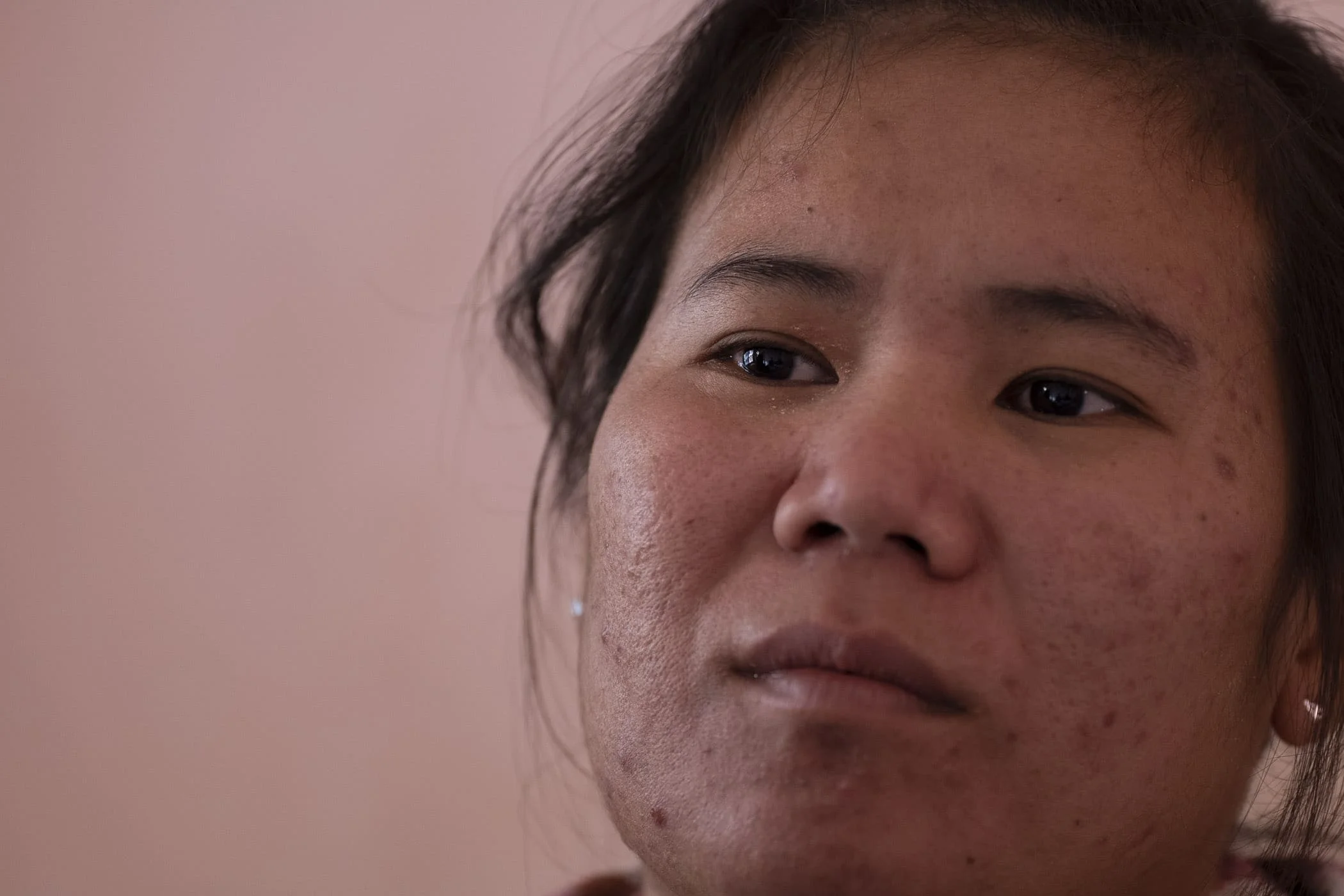Waking up in the morning more exhausted than when going to bed.
“There was no job in Myanmar; even if there were, it would not be enough to make a living…. the wage was terribly low, and women have no work opportunities. In the family, only the man could work as the breadwinner,” explains Zin Mar Cho.
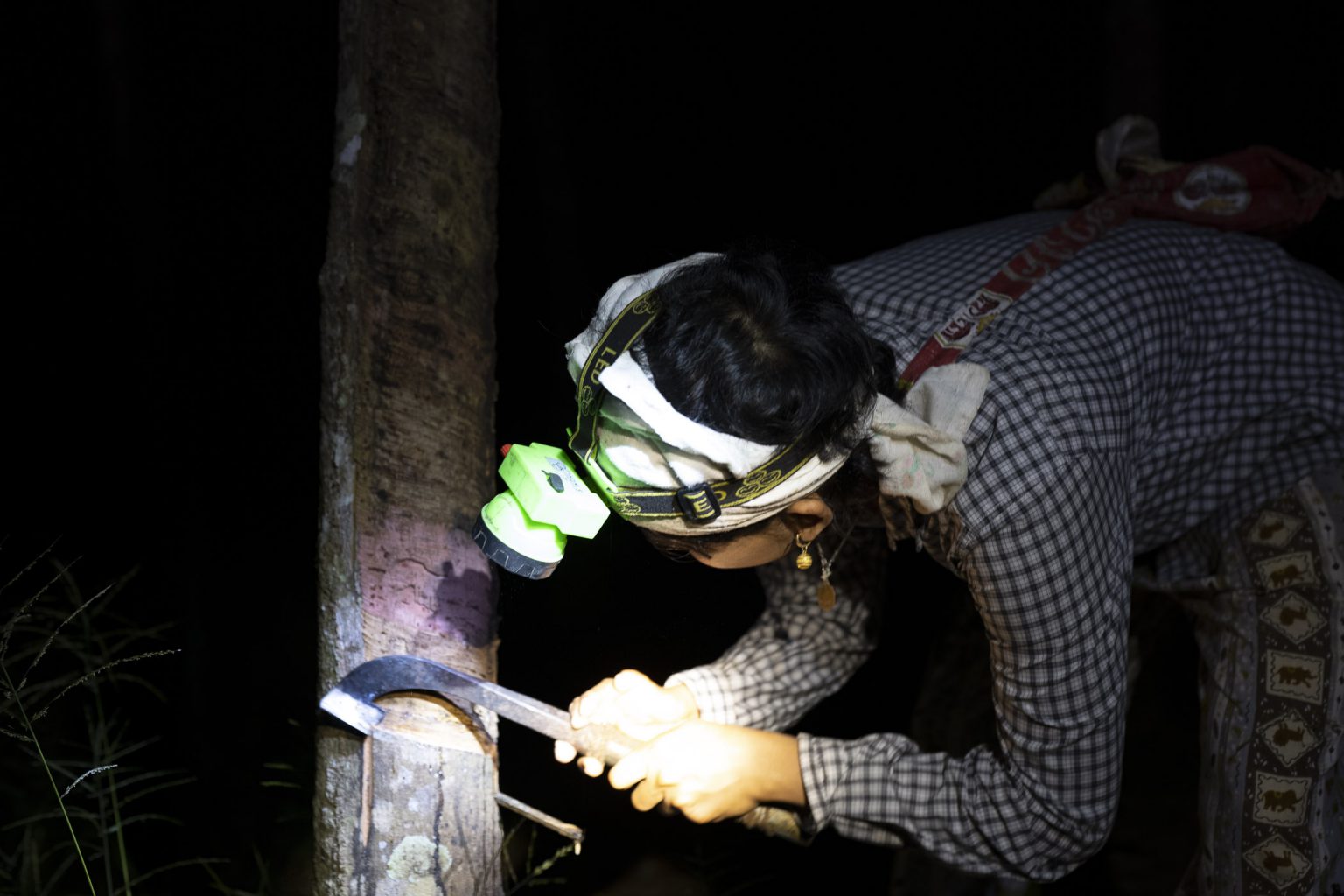
It has been many years since Zin Mar Cho traveled through Myanmar by train from Mawlamyine, Mon state, to Dawei township. She got on the first available boat heading to Thailand and arrived in Ranong province. Later, she moved to Surat Thani where for the past 15 years she has been working on a rubber plantation.
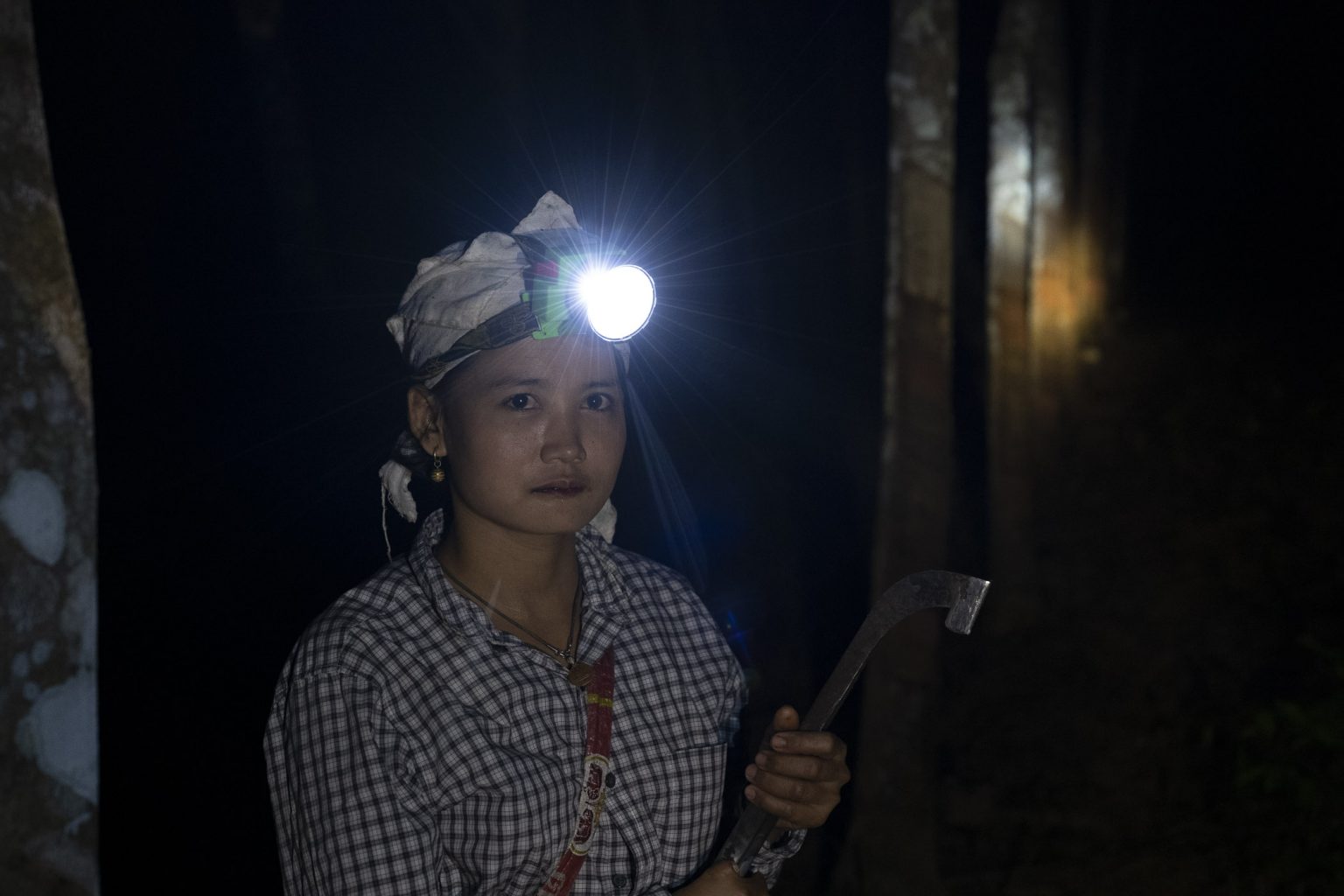
“After three days, I get one day off.” Zin Mar Cho said tiredly, “Each day, I needed to prepare the sharp knife, if the knife broke in the middle of the night, I had to come back home and waste more time fixing it. Boots were vital for work as it was dark and dangerous with snakes, scorpions, and other venomous animals that could harm us. Without a flashlight, we could not see anything. Sometimes, we carried at least two flashlights, to guide us each step of the way.”- Zin Mar Cho
Even after working at the rubber plantation for so long, Cho never felt safe in her position. She did not know what rights she had as a migrant worker.
In 2019, Cho’s life was changed when she and her friends met a field staff from Raks Thai Foundation (RTF), one of the USAID Thailand Counter Trafficking in Persons project partners.
Raks Thai provided them with a safe space, a group where they could share information and discuss their lives. This group, led by RTF staff, has met 8 times to discuss various issues including labor rights, what jobs they can do in Thailand, what work is prohibited, what type of documents they need if they want to change to a new job. The meetings also discussed human trafficking and forced labor signs to ensure that they could identify risky situations.
This was the beginning of change in Cho’s and her friends’ lives.
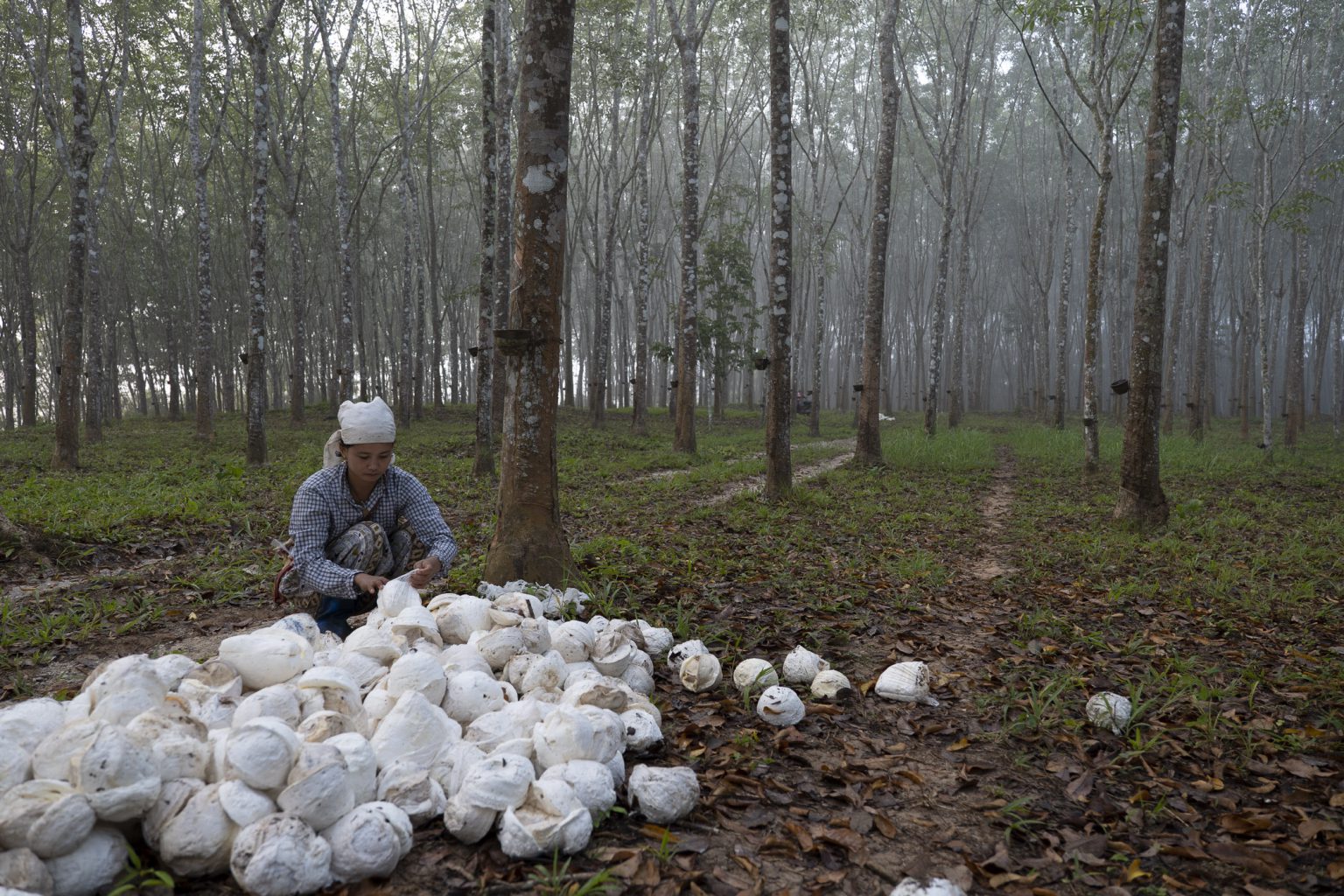
Today, Zin Mar Cho and her friends are confident and feel more secure in their jobs. They know about their rights and how to claim them such as obtaining birth certificates for their children. Information has empowered them. Cho and her friends now share the knowledge they learned from Raks Thai, providing support to other migrant workers whenever they can.
“Before this, I did not know what I was supposed to do when someone gave birth in Thailand, but after Raks Thai educated me, I brought my friend to process the birth registration at the district office. When someone got sick, we knew to bring the person to the hospital directly, as we had learned about our rights and access to health and medical services; we never knew this before, “Zin Mar Cho shared.
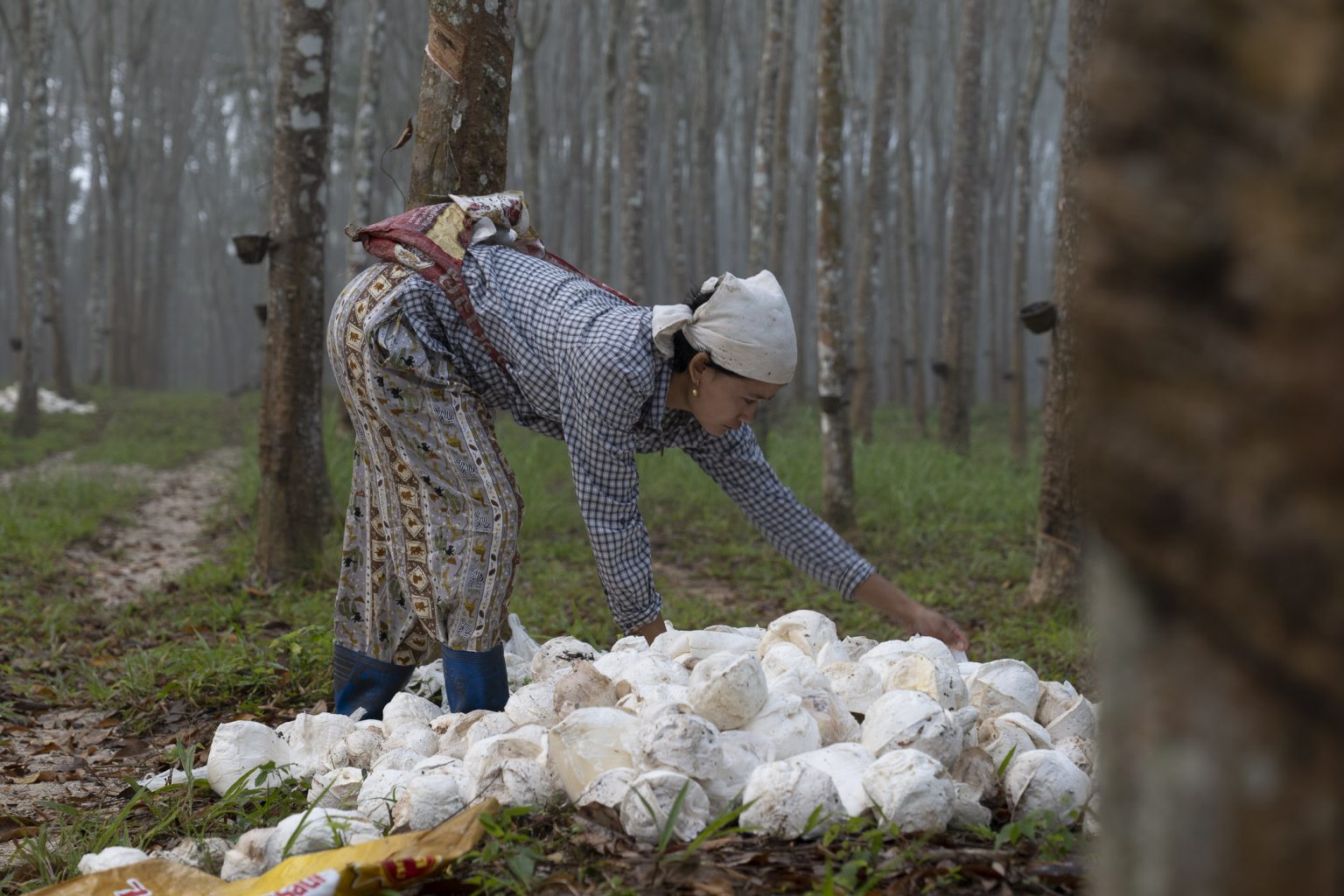
Photo by Suthep Kritsanavarin
